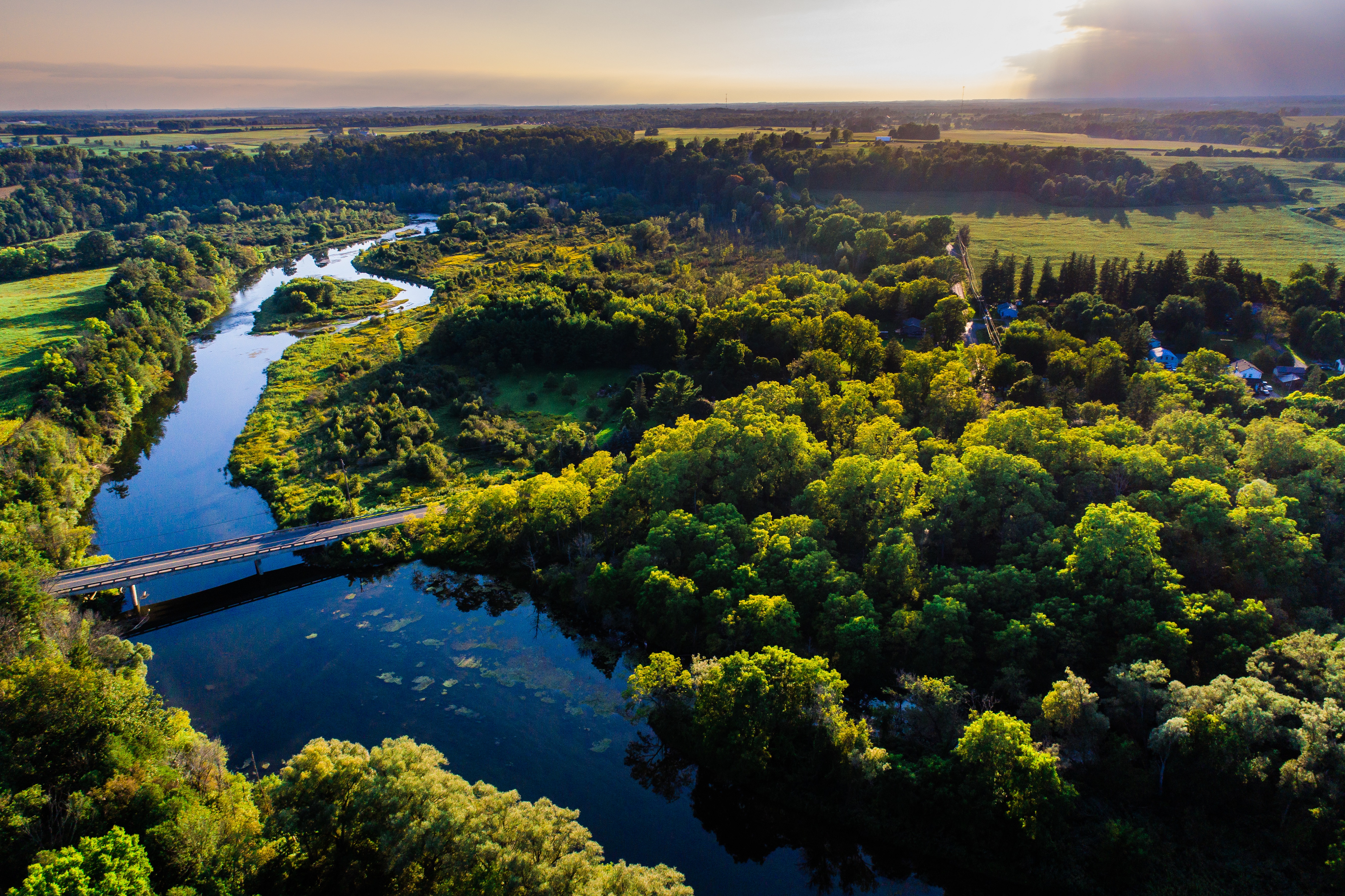OSA Nominee profile: John McRoberts
How stewardship projects support the business of farming
What helps the environment also helps John McRoberts. It’s a win-win for the East Zorra-Tavistock farmer who is continually improving his farmland to protect the soil where he grows corn, soybeans, wheat and other edible beans.
Since moving to the 83-acre farm on the 17th line 10 years ago, McRoberts has created a series of structural erosion control measures around the farm including water and sediment control basins. All of these projects have noticeably reduced surface runoff and better controlled the flow of water around the property during rainfalls.
“I just hate seeing erosion. I am trying to build up soil, not watch it wash away,” says McRoberts.
What appears to be just a grassy mound of dirt in the middle of his field, is actually a berm designed to blend into the landscape. Berms are often used on agricultural lands to slow and reduce the amount of water running down sloped parts of the land.
“Without doing things like this, I lose production in an area that is prone to erosion and flooding,” says McRoberts.
As more agricultural lands are developed, it is becoming increasingly more important to protect existing farmland. This means ensuring the soil stays put to grow much-needed crops.
McRoberts plans to add more berms at the other end of his field and continues to practice other soil protection measures, like reduced tillage to keep soil in place and creating grass waterways for when nearby drains overflow.
“This way the water then just flows out and keeps soil from eroding,” says McRoberts.
McRoberts says he will continue to find ways to reduce erosion and also has his eye on a pond restoration project on his property in the near future.














